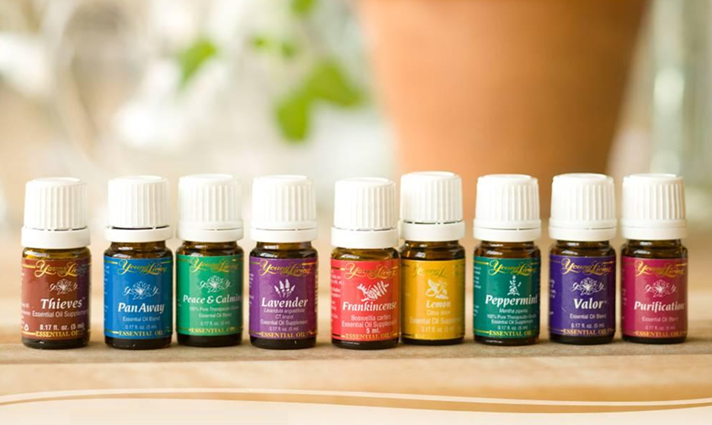Are Young Living Essential Oils a Scam?

Young Living Essential Oils, developed by D. Gary Young, are the focus of a multi-level marketing program that have brought essential oil products to the mainstream. The company’s latest claim, that its oils can kill the Ebola virus, has had distributor websites shut down by the FDA.
Earlier this week, the FDA sent letters to Young Living and its spin-off/competitor doTerra over misrepresentation by its distributors on the healing and preventative properties of their essential oil products. In the case of Young Living, the FDA listed three of its distributor sites that claimed Young Living essential oils could prevent or cure the deadly Ebola virus.
The website www.theoilessentials.com reportedly wrote “[T]he Ebola virus cannot survive in the presence of a therapeutic grade Cinnamon Bark and Oregano essential oil.”
The website www.essentialsurvival.org wrote “Thieves [a proprietary Young Living blend] oil can be . . . applied topically on the skin to help the body fight off infection . . . If Ebola was going around in my area . . . I would apply it to my feet and armpits 2x/day or more and take it in capsules at least 2x/day for preventive purposes,” and “If I were exposed to Ebola or had reason to believe I could be sick with it, I would use some of these oils every 10 minutes for a few hours, then cut back to every hour for the rest of the first day. Then I would use them every 2 waking hours of the day for at least a week, or longer if it was known I was sick.”
A doTerra distributor wrote “Many Essential Oils are highly Anti-viral. I list here a few of them those (sic) oils that could help prevent your contracting the Ebola virus . . ..” on a Twitter account credited to “MrsSkinnyMedic.”
Both doTerra and Young Living were cited for recommending essential oils “for conditions that cause them to be drugs under section 201(g)(1)(B) of the Federal Food, Drug, and Cosmetic Act (the Act) [21 U.S.C. § 321(g)(1)(B)]. The therapeutic claims establish that these products are drugs because they are intended for use in the cure, mitigation, treatment, or prevention of disease.”
Essential oils are special; they are pure plant and flower essences with a long history of curative properties. And what’s more delightful than the pure aromatic essence of a rose flower to make you feel calm, or the exhilarating fresh scent of eucalyptus leaves when you’ve got a stuffy nose? These are two common essential oils, potent tools of the plant kingdom, relied on and revered for ages by many cultures around the world. But they are not drugs. And while we may experience strong benefits of these oils, the FDA says it is irresponsible and dangerous to suggest that they can be used to defeat a deadly virus like Ebola.

But it’s not just Ebola. Distributors for Young Living and doTerra have claimed their oils can cure or prevent “Parkinson’s disease, autism, diabetes, hypertension, cancer, insomnia, heart disease, post-traumatic stress disorder (PTSD), dementia, and multiple sclerosis,” according to the FDA letter, without providing any scientific evidence to back up these claims.
It’s not just the Ebola virus that Young Living distributors routinely rely on to gain customers. Scare tactics sell product, and the company’s legion of sales representatives and their sales pitches have been compared to how Natural News promotes disinformation about health issues and government activity.
According to the Young Living website, “Gary established the standard now known as Young Living Therapeutic Grade™, a philosophy and a guarantee that Young Living will only sell 100% pure, natural, uncut oils that maintain their vital therapeutic potency.” And on this premise, he built the business that brings in more than $100 million in annual revenues. Much of that comes from the membership program and people signing up to become a “distributor” of the product.
But Young Living essential oils aren’t a magic cure-all. They’re not even certified organic. Neither are doTerra’s, yet both companies charge more for their products than organic brands do for offerings of a higher quality (the lack of pesticides and herbicides). On the Young Living website, it states that Gary “developed his first organic herb farming and distillation operation,” which would lead consumers to believe the oils are organic. But, the company also states that “Young Living cannot place the word ‘organic’ on our labels because we occasionally import some oils from different countries and most of these countries do not have organic standards that match the US standards.”
There are a number of respected, quality brands of essential oils; many are available at health food stores, Whole Foods Market, or online. At their simplest, essential oils are synthetic chemical-free alternatives to perfumes or deodorants. And there is some research to back up health claims on specific essential oils. In most cases, what you’re able to find at health food stores are therapeutic grade products, like those made by Simplers Botanicals, Aura Cacia, Now, or Mountain Rose Herbs.
Essential oils can be part of a healthy lifestyle. But even the National Association for Holistic Aromatherapy (NAHA) acknowledges the unethical and potentially dangerous behavior of brands like Young Living and doTerra. According to NAHA, “NAHA is aware of several Multi-level marketing companies who disseminate irresponsible and misinformation into the aromatherapy market place.”
For more information on healthy and responsible use of essential oils, you can visit the NAHA website.
Find Jill on Twitter and Instagram
Related on Organic Authority
How to Make Your Own Perfume with Essential Oils
8 Essential Oils for Meditation
3 Best Essential Oils For Cleaning
Image: younglivingecuador

